POSTED: 10 November, 2025
5G, Wi-Fi 7 & Connectivity: How Future Laptops Will Stay Always Online in the UK
It’s no secret that connectivity has become the backbone of modern work. Whether you’re collaborating remotely, joining video calls on a train, or syncing data between offices, staying connected isn’t optional; it’s essential. And that’s exactly where 5G laptops and Wi-Fi 7 laptops (802.11be) are set to shine.
In the UK, we’re seeing the emergence of always-connected laptops devices built with integrated 5G, Wi-Fi 7, and eSIM capabilities that keep you online everywhere.
Gone are the days of hunting for unstable public Wi-Fi or tethering through your phone. These new-generation devices intelligently blend mobile 5G networks and ultra-fast Wi-Fi 7 for seamless, secure, uninterrupted internet wherever you are.
This guide explores how these technologies work, why they matter, and what to expect from the next wave of business laptops and consumer devices launching across the UK.
From Wi-Fi Dependence to True Mobility
For years, laptops relied solely on Wi-Fi and, let’s be honest, that hasn’t always been ideal. Public hotspots can be slow, insecure, and unreliable, while home and office routers often choke under multiple connected devices.
That’s changing. The arrival of built-in 5G modems and Wi-Fi 7 routers signals a new era of connectivity, one that allows laptops to stay “always online” without compromising.
- Early 4G LTE laptops gave professionals a taste of independence from Wi-Fi, but limited coverage and speed meant the experience wasn’t seamless.
- 5G laptops, on the other hand, bring broadband-class speeds, lower latency, and built-in security perfect for remote work, hybrid teams, and mobile professionals.
- With Wi-Fi 7 now on the horizon, home and office networks will match those 5G speeds, creating a world where connectivity simply “works” in the background.
What Exactly Is a 5G Laptop?
A 5G laptop is a device equipped with an integrated 5G modem either with a physical SIM slot or an embedded eSIM allowing it to connect directly to mobile networks without needing a hotspot.
How does it keep you connected?
- Nationwide Coverage: Modern 5G networks span much of the UK, meaning you can work from a rural client site, a café, or even on the train.
- Security First: Unlike public Wi-Fi, 5G connections use SIM-based authentication and encrypted data channels, keeping sensitive information secure.
- Speed & Reliability: Average UK 5G speeds already hit 1–3 Gbps, with mmWave 5G reaching up to 10 Gbps in select areas ideal for 4K streaming, cloud editing, or heavy file uploads.
- Low Latency: Under 10 ms response times make real-time tasks like video conferencing or AR/VR applications feel instant.
Devices such as the Lenovo ThinkPad X13 Yoga, Acer TravelMate P6 already demonstrate what’s possible. They provide full-day connectivity, built-in modems, and smart antennas that optimise signal strength on the move.
| Tip: When choosing a business laptop, look for models labelled WWAN or 5G-enabled these indicate built-in cellular connectivity rather than relying solely on Wi-Fi. |
Wi-Fi 7: Key Features & What They Mean for You

Wider Channels (up to 320 MHz)
Wi-Fi 7 supports channel widths of up to 320 MHz, double that of Wi-Fi 6 and 6E. This wider bandwidth allows much more data to move through your network at once, reducing bottlenecks and improving efficiency. The result is faster, smoother connectivity even when multiple devices are active on the same network. For laptops, this means significantly higher throughput for demanding tasks such as cloud syncing, 8K streaming, or online gaming, without needing a wired Ethernet connection.
Multi-Link Operation (MLO)
One of Wi-Fi 7’s most impressive features is Multi-Link Operation, which allows devices to use several frequency bands 2.4 GHz, 5 GHz, and 6 GHz simultaneously. This dynamic connection ensures that if one band becomes congested, your laptop can automatically shift to a clearer signal or combine multiple links for greater stability.
The benefit for users is simple: stronger, more reliable performance throughout your home or office, with fewer dropouts and faster roaming between access points.
Higher-Order Modulation (4096-QAM)
Wi-Fi 7 introduces 4096-QAM (Quadrature Amplitude Modulation), a major upgrade in how data is transmitted over wireless signals. By packing more information into each signal, Wi-Fi 7 can achieve much higher data rates without using additional power or spectrum.
For laptop users, this translates to faster downloads, smoother streaming, and improved upload speeds; perfect for professionals transferring large files or gamers looking for low-latency responsiveness.
Up to 16 Spatial Streams & Improved MU-MIMO / OFDMA
To handle today’s connected environments, Wi-Fi 7 enhances multi-user capabilities with up to 16 spatial streams and improved MU-MIMO and OFDMA technologies. These upgrades enable routers and access points to communicate efficiently with many devices at once, rather than sequentially.
For laptop users, especially in busy offices or homes with dozens of active devices, this means consistently strong performance and less slowdown even during peak usage hours.
Lower Latency and Enhanced Reliability
Combining all of these improvements, Wi-Fi 7 delivers lower latency and far greater reliability than previous standards. Response times are shorter, data transfers are smoother, and real-time applications perform better.
This is particularly valuable for activities like video conferencing, remote collaboration, cloud gaming, or using AR/VR tools, where even slight interruptions can be disruptive. For professionals and creatives, it ensures a more seamless, stable online experience no matter how demanding the workload.
Advanced Congestion Management and Wider Bandwidth
With the rise of smart homes and remote workspaces, networks are more crowded than ever. Wi-Fi 7 addresses this with intelligent spectrum management and wider overall bandwidth, making it better equipped to handle heavy network traffic and interference.
In high-density areas such as shared offices, apartment buildings, or large public venues, Wi-Fi 7 maintains faster, more stable connectivity. For laptop users, that means a dependable connection in even the busiest environments.
Backwards Compatibility
Wi-Fi 7 is fully backwards compatible with earlier Wi-Fi generations, including Wi-Fi 6E and Wi-Fi 5. This ensures a smooth transition as new hardware rolls out. You can upgrade to a Wi-Fi 7 router or laptop today and still use your existing devices without issue.
For users, this provides flexibility, and you’ll benefit from faster speeds now while keeping your current ecosystem intact until you’re ready to upgrade everything else.
How 5G and Wi-Fi 7 Work Together?
The real magic lies in how 5G and Wi-Fi 7 work together to create a seamless, uninterrupted online experience. Future laptops will intelligently switch between these two technologies, automatically selecting the fastest and most stable connection at any given moment without the user even noticing. When you’re outdoors or on the move, 5G ensures wide-area mobility and reliable internet access, keeping you connected during commutes or client visits.
Step indoors, and Wi-Fi 7 takes over, providing ultra-fast local connectivity with lower latency and higher capacity. Behind the scenes, AI-driven network management coordinates this hand-off smoothly, so your video calls won’t drop as you leave the office, and your downloads won’t pause mid-journey.
Some modern devices, such as the Microsoft Surface Copilot laptops, already use intelligent network switching and adaptive antenna arrays to maintain the strongest signal possible offering a glimpse of what truly always-connected computing will soon feel like.
Featured Products: Ready for the 5G & Wi-Fi 7 Future
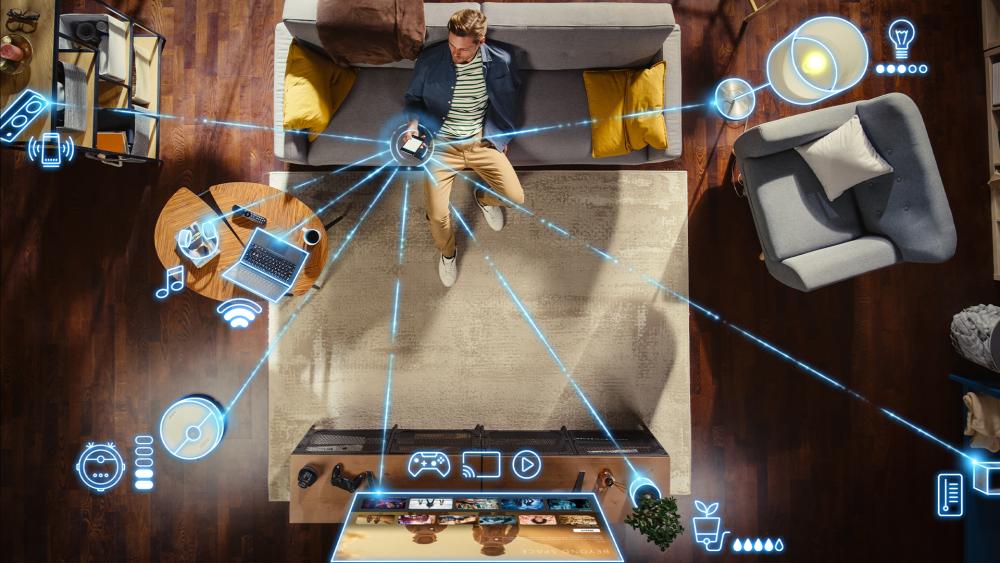
To get the most out of next-generation connectivity, you’ll need hardware built for speed and reliability. Here are a few standout options available now at Box.co.uk:
ASUS RT-BE6800 (RT-BE86U) Wi-Fi 7 Dual-Band Router
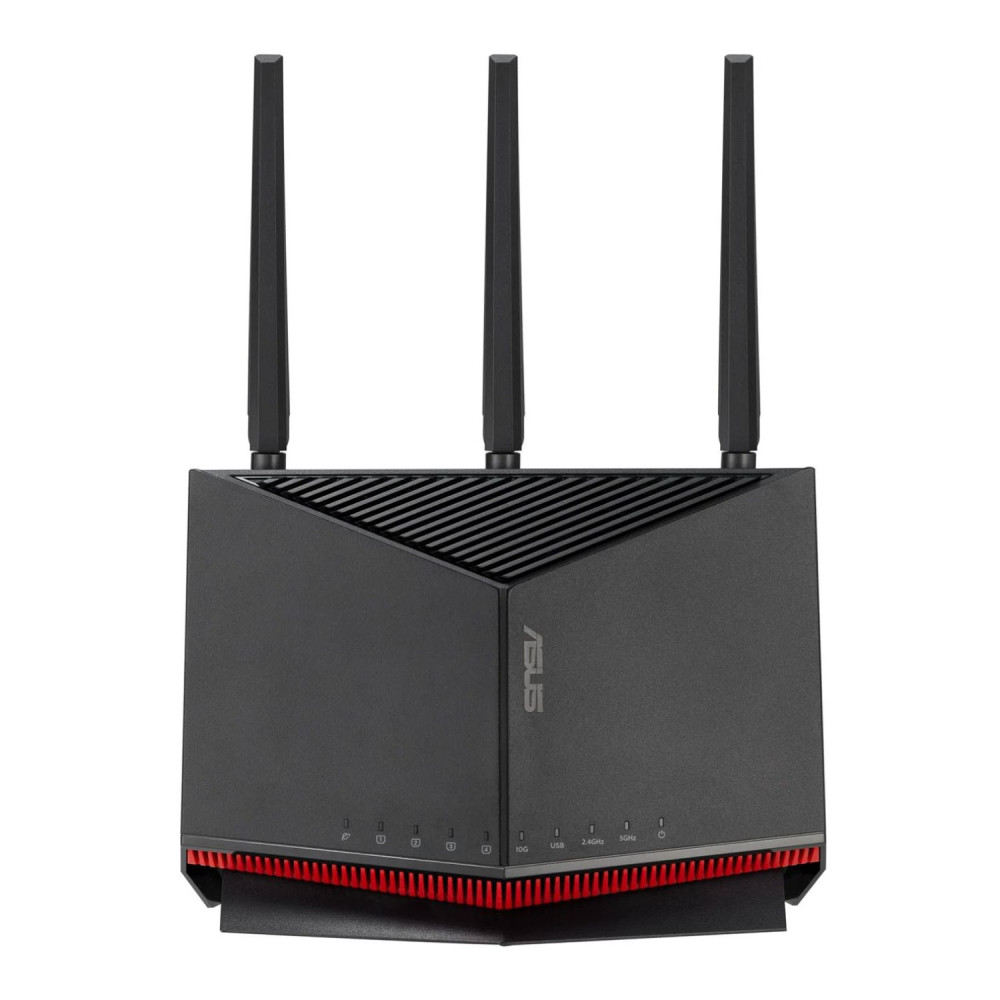
A powerhouse dual-band Wi-Fi 7 router offering speeds up to 6,800 Mbps. It supports Multi-Link Operation (MLO) and 4096-QAM for ultra-fast, low-latency performance perfect for modern laptops, streaming, and gaming setups.
ASUS RT-AX57 GO AX3000 Wi-Fi 6 Travel Router
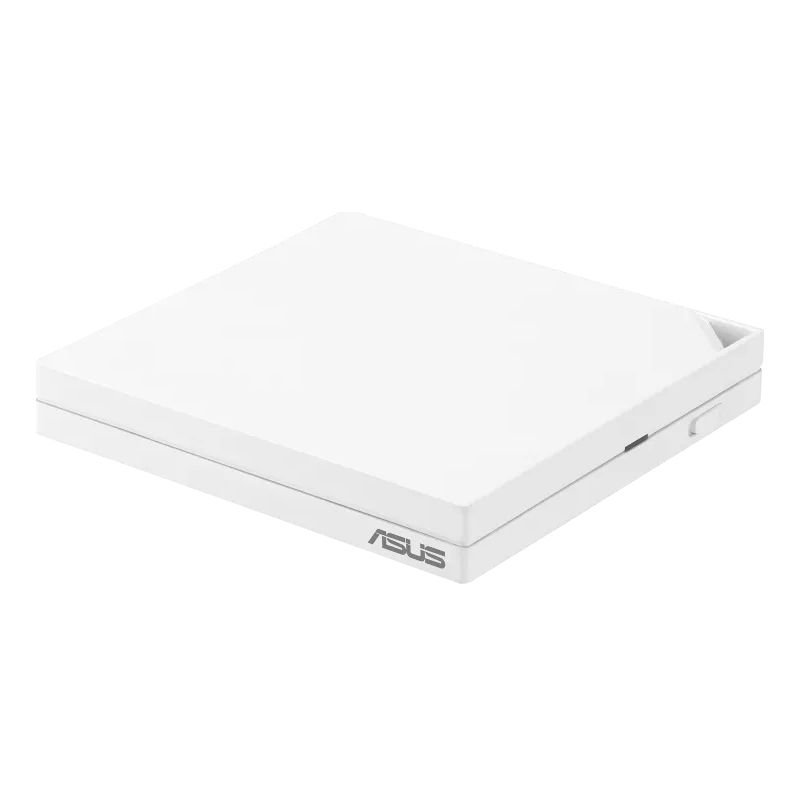
Compact and versatile, this Wi-Fi 6 router supports 5G tethering and multiple modes, making it ideal for hybrid work or travel. It’s a great portable option for creating secure personal networks anywhere.
ASUS ZenWiFi BQ16 BE25000 Wi-Fi 7 Mesh System (2-Pack)
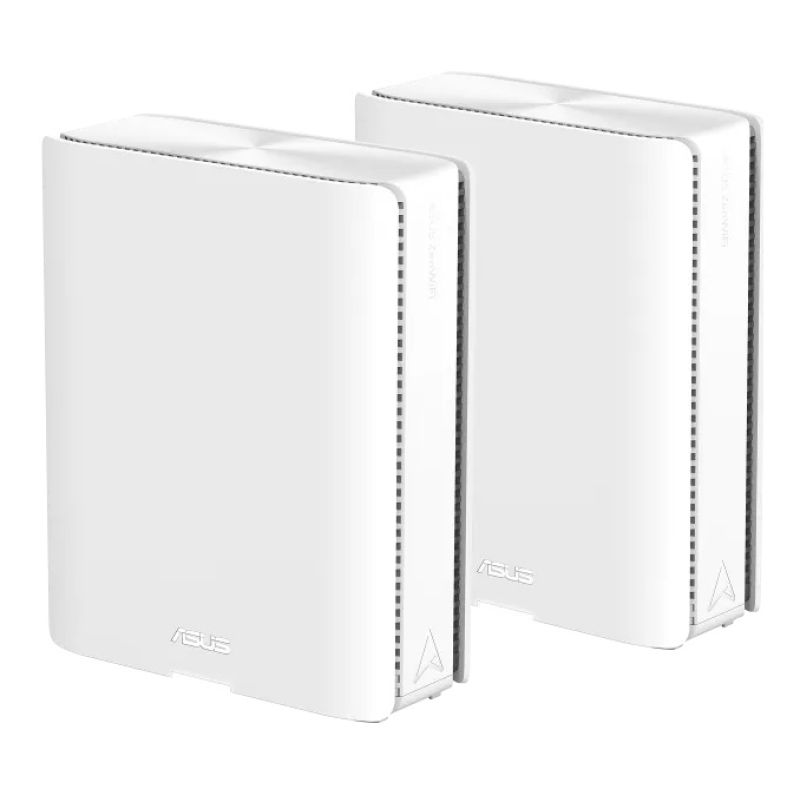
A premium Wi-Fi 7 mesh router delivering up to 25 Gbps combined speed. It offers quad-band coverage and AiMesh scalability, keeping every laptop and device connected with consistent high-speed performance.
Upgrade your setup with the latest Wi-Fi 7 routers at Box.co.uk built to power your always-connected lifestyle.
eSIM & WWAN: The Hidden Power of Modern Laptops
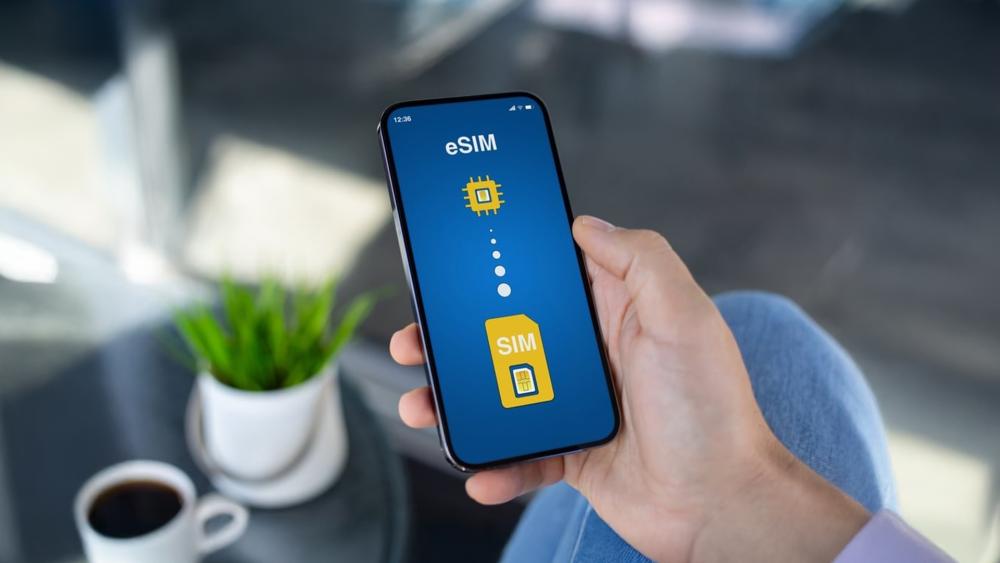
A big part of the 5G revolution is happening quietly inside laptops themselves. Modern devices now feature eSIM and WWAN (Wireless Wide Area Network) support, giving them the same kind of mobile connectivity you’d expect from a smartphone. Instead of relying on physical SIM cards, eSIM laptops connect instantly to 5G networks through software, no trays, no tools, and no hassle.
This embedded SIM (eSIM) technology also makes switching between network providers simple, whether you’re changing data plans in the UK or travelling abroad for work. WWAN ensures that your laptop connects directly to the 5G network, giving you secure and high-speed internet access wherever mobile coverage is available. Setting up connectivity in Windows 11 is straightforward, too users can manage eSIM profiles directly through the Settings app in just a few clicks. Together, these features make modern laptops truly independent and always connected, capable of staying online anywhere without relying on hotspots or external dongles.
When Will Wi-Fi 7 Arrive in the UK?
While the standard is officially approved, it will take time for routers and devices to catch up. You’ll need new hardware on both ends, a Wi-Fi 7-equipped laptop and a router that supports the technology.
Manufacturers are already getting ready. TP-Link, ASUS, and Netgear have announced Wi-Fi 7 routers with 10 Gbps ports, mesh-networking support, and even touchscreen interfaces. Meanwhile, in the UK, BT-owned EE has confirmed plans to roll out Wi-Fi 7 routers in 2024, powered by Qualcomm technology.
On the device side, chipset makers like Qualcomm and MediaTek are producing Wi-Fi 7-ready modules meaning that upcoming laptops, tablets, and smartphones will start shipping with support from 2024 onwards.
The best part? Wi-Fi 7 is fully backwards compatible with older devices. So even if your current laptop only supports Wi-Fi 6E, you’ll still benefit from improved performance once your router is upgraded.
To prepare, it’s worth exploring the latest Wi-Fi 7 routers and network switches to future-proof your home or office network.
Conclusion: The Future of Always-Connected Laptops Starts Now
The shift to 5G laptops and Wi-Fi 7 connectivity marks a defining moment in how we use technology every day. As more people work remotely, collaborate globally, and rely on cloud-based tools, being online is no longer just convenient; it’s essential. The next generation of laptops will combine the mobility of 5G with the speed and stability of Wi-Fi 7, creating a seamless, always-connected experience that keeps you productive anywhere.
Features like eSIM, WWAN, and AI-driven network management mean you’ll stay connected automatically whether you’re working from home, commuting, or travelling abroad. These advances make laptops smarter, faster, and more reliable, giving you confidence that your connection will never hold you back.
At Box.co.uk, you can already explore the latest range of business laptops, Microsoft Surface Copilot laptops, and Wi-Fi 7 routers designed to deliver this next-generation connectivity. Upgrade today and experience the future of performance and freedom where your laptop isn’t just powerful; it’s always online.
FAQs
Is there a 5G laptop?
Yes, several brands now offer 5G laptops with built-in modems, including models from Lenovo, HP, Dell, and Samsung.
Can a laptop support 5G?
Absolutely. Laptops with WWAN support and either a physical SIM or eSIM can connect directly to mobile 5G networks.
Is 5G good for laptops?
Yes. It provides faster speeds, lower latency, and stronger security than public Wi-Fi perfect for remote work, streaming, or gaming.
Do 5G laptops need a special SIM card?
No special SIM is required. You can use a standard mobile data SIM or set up an embedded eSIM profile directly in Windows 11.
Will Wi-Fi 7 replace 5G?
Not exactly, they complement each other. Wi-Fi 7 dominates indoors, while 5G covers everywhere else, giving you seamless connectivity no matter where you work.